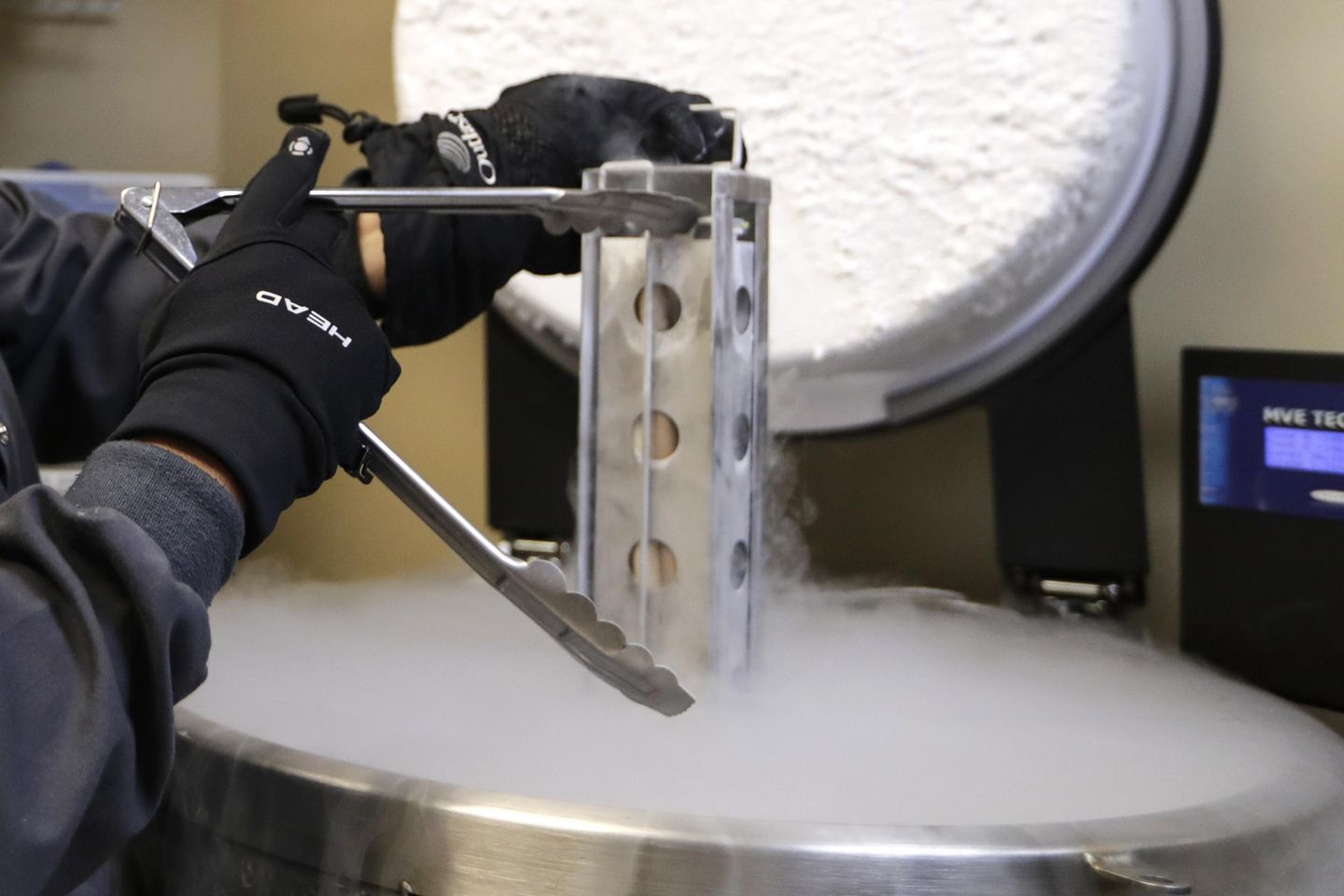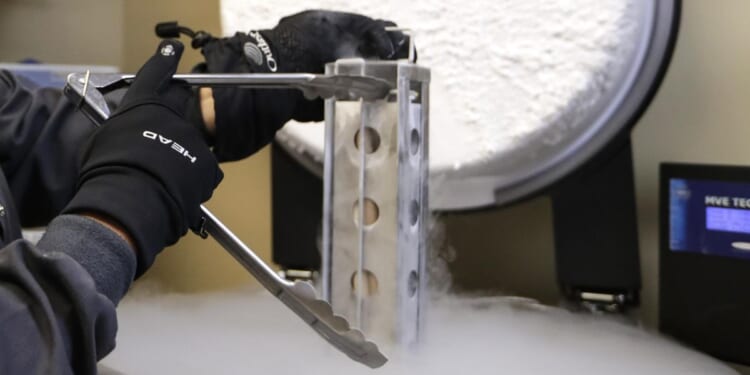
OPINION:
In recent discussions surrounding embryo rights in Alabama and the ethical implications of in vitro fertilization (IVF), one glaring reality has become abundantly clear: embryos are too often treated as nothing more than discardable property.
The Alabama Supreme Court’s recent ruling involves a case brought by couples who had frozen their embryos for IVF, with the frozen embryos stored by an Alabama clinic. A different patient of the clinic wandered into the room where the frozen embryos were stored, tried to pick them up, and suffered a “freeze burn,” dropping all the embryos and instantly killing them. This case underscores the urgent need for accountability within the IVF industry and the broader recognition of the need to protect embryos that are frequently viewed as disposable commodities.
Subscribe to have The Washington Times’ Higher Ground delivered to your inbox every Sunday.
As someone who has adopted embryos resulting from IVF, I am acutely aware of the complexities surrounding this issue. Embryo adoption stands as a moral solution, offering unused or unwanted frozen embryos the opportunity for life with adoptive parents. The donated embryos are transferred to the adoptive mother’s womb with the goal of achieving a successful pregnancy and childbirth.
While I am a staunch advocate for embryo adoption, it’s important to clarify that I do not support the ongoing creation and freezing of embryos through IVF. Treating human life in such a manner is fundamentally unethical and goes against our societal values. Embryo adoption serves as a current solution to a pressing issue, offering hope to couples struggling with infertility while providing a chance for existing embryos to thrive. However, I desire to see a future where embryo adoption is no longer necessary because we’ve moved beyond the practice of creating and freezing human beings. Our goal should be to foster a world where every individual is treated with dignity and respect from the moment of conception.
The alternatives to embryo adoption commonly promoted within the IVF industry involve either discarding these embryos or subjecting them to scientific experimentation, ultimately leading to their destruction. IVF, at its core, presents significant ethical challenges by treating embryos as mere commodities — objects to be bought, sold, frozen, and discarded if unwanted. This disregard for the inherent value of human life underscores the urgent need for ethical reform within the IVF industry.
The logic of the IVF industry is, to put it bluntly, bewildering.
Embryos, the very essence of hope and potential for couples longing to start or expand their families, are inherently invaluable. After all, without embryos, the very existence of life would be impossible. Each one of us, in our current form, once existed as an embryo — a testament to their fundamental role in the creation of life. Yet, despite this intrinsic value, embryos within the IVF system are shockingly treated as disposable property. This contradiction begs the question: How can something so vital to the creation of life be simultaneously regarded as expendable? How can the same entity be alternately revered as a potential child and dismissed as disposable property?
As someone who has worked with the IVF industry in navigating the intricate process of embryo adoption, I’ve encountered firsthand the disparity in language and treatment of embryos. On the one hand, doctors and staff have enthusiastically painted a picture of my husband and me as parents nurturing our babies-to-be, using endearing terms that evoke images of future family joy. Yet, behind the scenes, the same embryos may be referred to as nothing more than “tissue to be transported” during the logistics of shipment or summarily labeled as “discarded” when their life comes to an end. This inconsistent terminology underscores a deeper issue of how embryos are perceived and treated, with profound implications for their dignity and rights.
During pivotal moments like embryo transfers, the stark contrast in language can be jarring.
I vividly remember the moment when our embryos were displayed on the screen. I began tearing up and said, “Look at those tiny humans!” The doctor’s confirmation, “There are your little humans,” stood in stark contrast to her next comment: “Little humans that’ll talk back to you in 16 years.” This disparity reinforced the reality of their humanity – and also, the problematic double speak within the IVF industry.
How can embryos that we cherished so dearly be respected as humans by the IVF industry when it is convenient, while other embryos are regarded as trash to be discarded if they are of “poor quality,” have a genetic mutation or are simply just not wanted anymore?
Saint John Paul II put it best when he said, “A society will be judged on the basis of how it treats its weakest members.”
Advocating for embryo protection is a call for accountability, responsibility, and a recognition of the inherent value and dignity of every human life, regardless of its stage of development. We must challenge the language and practices of the IVF industry to reinforce the fact that embryos are not commodities to be discarded at whim but deserve the same reverence and protection afforded to any other human being. My sincere hope is that we put an end to the creation, dehumanization, and destruction of embryos through IVF, and see all existing embryos granted the opportunity for life beyond their current frozen state.
The Alabama Supreme Court moved us a step in the right direction when it decided that the couples involved in the lawsuit could seek compensation from the clinic under the Wrongful Death of a Minor Act. This Act historically encompasses unborn children under Alabama law, and the Court clarified that there is no “unwritten exception” for embryos – establishing a precedent that recognizes embryos as more than mere property. This reflects progress in protecting human beings at all stages of life, not just in Alabama but nationwide.
P.S. I wholeheartedly advocate for exploring Snowflakes Embryo Adoption as a viable alternative to IVF, as it offers a compassionate way to give existing embryos a chance at life while providing the families who created them with a moral and ethical means to release their embryos.
–
Emily Berning is the President and Co-Founder of Let Them Live, a 501(c)(3) non-profit dedicated to saving lives from abortion by financially supporting women in crisis pregnancies. Emily and her husband, Nathan, have adopted 25 embryos over the last two years and are hoping to be pregnant soon. They live in Ormond Beach, Florida where they enjoy the beach with their three dogs.












